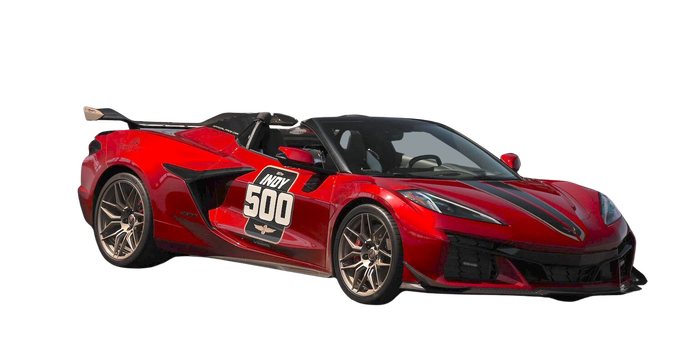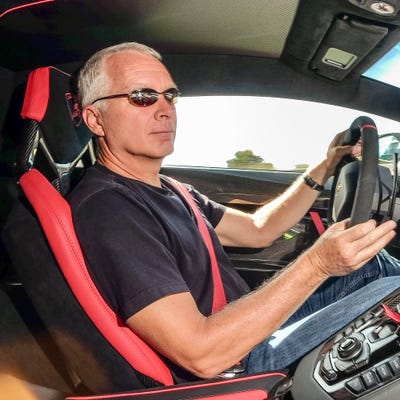2023 Corvette Highlights this Gallery of Indy 500 Pace Cars
See how pace cars for the Indianapolis 500 have evolved over the decades from pre-race parade cars to serious speed machines.

The 2023 Chevrolet Corvette Z06 Indianapolis 500 pace car.Penske Entertainment: Chris Owens
The pace car for the Indianapolis 500 has evolved dramatically over the decades, from a ceremonial parade car seemingly meant to show off its occupants to a serious performance machine intended to participate in race starts and restarts following caution periods.
For most of the history of the race, any domestic automaker could provide the pace car. For many years, the racing engines, like the race cars, were not necessarily affiliated with any specific brand. In recent decades, carmakers apply their brand to the engines in the race cars, so they don't want competitors leading the field of cars to start the race.
In one interesting twist, after pacing the race in 1976, Buick was motivated to become an engine supplier for the race cars!
The variety of brands, which once included the likes of DeSoto, Plymouth, Pontiac, Mercury, and other dead brands, has dwindled in recent years. Finally, Chevrolet inked an exclusivity deal after the Dodge Viper GTS served as the pace car in 1996.
Chevy has mostly alternated between Corvettes and Camaros since, with appearances by the SS sport sedan and the SSR retro pickup truck mixed in. Corvette has paced the race 20 times since its first appearance in 1978, and 2023 is the 7th-consecutive year of the 'Vette leading the field of Indycars to the green flag to start the race.
Click through the photo gallery for a look at some of the surprising variety of Indy 500 pace cars over the years.
About the Author(s)
You May Also Like





